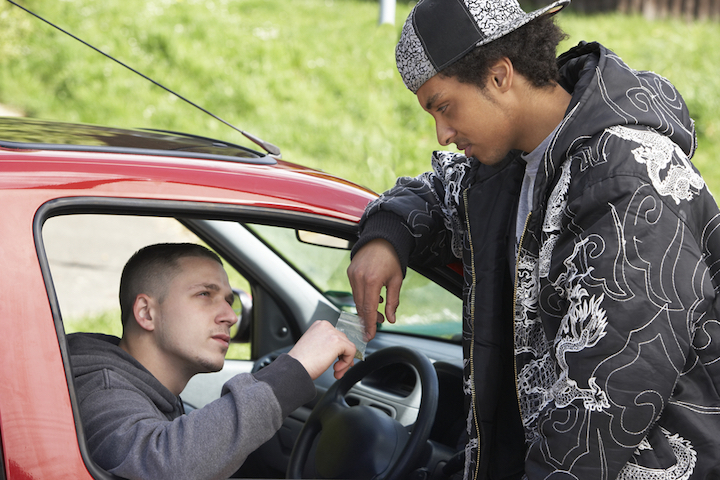
Nixon, Vietnam and the Black Drug Dealer
Two thirds of American forces in Vietnam smoked marijuana. If those troops were worried about copping a joint once they returned to America, they need not worry. The marijuana plant, which grew in abundance in Southeast Asia, was now available at home, sold by the archetypical black drug dealer.
If America “lost its innocence” after the Kennedy and King assassinations, that innocence was replaced by fear. Richard M. Nixon knew that whites were reacting to economic and societal changes that threatened to destabilize the mythical image of post-World War II prosperity. This “Silent Majority” instead embraced fear mongering, often at the expense of the freedom of young black men.
This new sentiment in public discourse was a shocking reversal to the course set by Lyndon Johnson to lead the entire nation into a greater society, one that defended minority rights to vote, eliminated racial segregation and created a greater safety net for those who were in greatest economic need. The hard-won Civil Rights Acts of ’64 and ’65 soon gave way to raging protests against the war in Vietnam, making civil rights seem more like an early victory in a much longer cultural war.
This culture war often set noisy young men and women wrapped in clouds of marijuana smoke against the older demographic of what Tom Brokaw called the “Greatest Generation.” Those who had won WWII, and in the celebrant Baby Boom following the war, had given rise to a massive young constituency that insisted on shaking up the status quo.
To battle this counter-culture wave, Nixon capitalized on fear, focusing on the issue of criminal violence. Law and order would be the theme of his 1968 presidential campaign. Drug were a particularly fruitful topic, as it combined violent crime with undercurrents of anti-hippy sentiment and, most potently, residual racism and resentment from the civil rights movement.
In a letter to former President Eisenhower, Nixon stated; “Ike, it’s just amazing how much you can get done through fear. All I talk about in New Hampshire is crime and drugs, and everyone wants to vote for me-and they don’t even have any black people up here.”
Large American cities became, in Nixon’s narrative, evil citadels of under-served African Americans. Many had once been part of a working-class existence. But the phenomenon of deindustrialization saw inner city steel mills and factories leave the U.S. for overseas. The now giant abandoned factory mills served as tall moss covered trees in a swamp that was a breeding ground of menial-paying jobs, low-skilled labor and eventually, the high-paying but dangerous short lived career of a drug pusher.
This setting would serve Nixon perfectly. The bait of hate would win him the 1968 presidential election, and set in motion three decades of fierce drug prohibition and incarceration, one that affected young black men far more than any other group.
Even with legalization dawning since the new Millennium, the residual scars from Nixon’s assault on freedom are still seen in the inner-city strife and anti-authority protest of today. Generations of missing black persons swallowed whole by the drug war will take more than a few legal joints to repair.